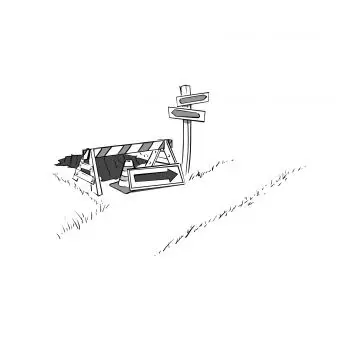[vc_row][vc_column width=”1/4″][vc_single_image image=”12772″ img_size=”” alignment=”center”][/vc_column][vc_column width=”3/4″][vc_column_text]
Amazon Sellers’ Guide: Copyright Law
By: CJ Rosenbaum Esq., Anthony Famularo Esq., Levi Stewart, and RJ Cherpak
Chapter 4: Copyrightable Subject Matter on Amazon ……….. 51
I. What Types of Works of Authorship are Copyrightable on Amazon? ……….. 51
II. How do I know if I Own the Copyright for the Product I am Selling? ……….. 54
III. What Types of Copyright Claims are Typically Brought Against Amazon Sellers? ……….. 54
IV. Conclusion ……….. 55
[/vc_column_text][vc_separator][/vc_column][/vc_row][vc_row][vc_column][vc_column_text]
Copyright Law: Chapter 4: Copyrightable Subject Matter on Amazon
I. What Types of Works of Authorship are Copyrightable on Amazon’s Detail Pages?
The works of authorship that are copyrightable on Amazon are generally images and text. A person who takes an original photograph of a product generally has copyright protection over the photo and can use that photo on his or her detail page to sell that product. However, a photo found on someone else’s website should not be uploaded onto a product detail page without the other person’s permission.
For example, Timex had photos of its watches taken. Timex owns the copyright in the images of its watches.  If an Amazon Seller copies and pastes Timex’s images onto a product detail page on Amazon, that Seller would be violating Timex’s copyright in the images.
If an Amazon Seller copies and pastes Timex’s images onto a product detail page on Amazon, that Seller would be violating Timex’s copyright in the images.
Similarly, a person who drafts a product’s description has copyright protection over the verbiage. Text created by someone or by a company should not be copied and pasted without the other person’s or the company’s permission. For example, Cannon camera drafts text describing the various features of its cameras. Cannon has copyright interest to the description of the cameras. If a Seller copies Cannon’s verbiage and pastes it anyplace, the Seller would be violating Cannon’s intellectual property rights.
To prevent violating someone else’s copyrights, Sellers should only upload images or text that are created by him or herself, or where the Seller has the copyright owner’s permission to use the verbiage or image(s).
II. How Do I Know if I Own the Copyright for the Product I am Selling?
Another form of copyright protection that exists on Amazon is the copyright interest in the products being sold. The creator of an original work typically owns the copyright in that work.
First Sale Doctrine Exception
A Seller can lawfully sell someone else’s copyrighted work on Amazon if she has received permission from the copyright owner or if the use is protected by the “First Sale Doctrine.”
The First Sale Doctrine generally protects the resale of genuine goods that are lawfully obtained, such as a book or CD, without permission from the copyright owner.
For example, a seller who decides to sell a used copy of someone else’s book on Amazon is selling someone else’s copyrighted work. A seller is typically permitted to sell his/her particular copy of the book without further permission from the copyright owner because the First Sale Doctrine protects the resale of genuine, lawfully obtained products.
III. What Type of Copyright Claims are typically brought against Amazon Sellers?
The most common claims that occur on Amazon are:
1. The seller impermissibly used images the author had not authorized for seller’s use.
2. The seller impermissibly use text from the author had not authorized for seller’s use.
 When an Amazon seller creates a detail page for a product, the seller wants to make their listing as attractive as possible to the potential-buyer. Efforts to gain a competitive edge in the ecommerce space has led many sellers, often unknowingly, to commit copyright infringement violations. If a seller is selling brand-name watches, they cannot take the exact image of that watch from that brand’s website without the permission of the brand that owns the image.
When an Amazon seller creates a detail page for a product, the seller wants to make their listing as attractive as possible to the potential-buyer. Efforts to gain a competitive edge in the ecommerce space has led many sellers, often unknowingly, to commit copyright infringement violations. If a seller is selling brand-name watches, they cannot take the exact image of that watch from that brand’s website without the permission of the brand that owns the image.
Amazon takes claims of copyright infringement seriously.
Even if a seller is infringing on someone else’s copyrights without knowledge, Amazon will still take action and the seller’s account is often suspended.
IV. Conclusion
Sellers should be aware of what copyright law protects and how to avoid violating others’ rights. If an Amazon seller receives a complaint that they violated someone’s copyright, the seller is at risk of losing their ability to sell on Amazon.[/vc_column_text][/vc_column][/vc_row]
